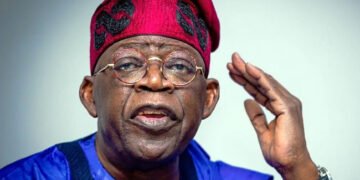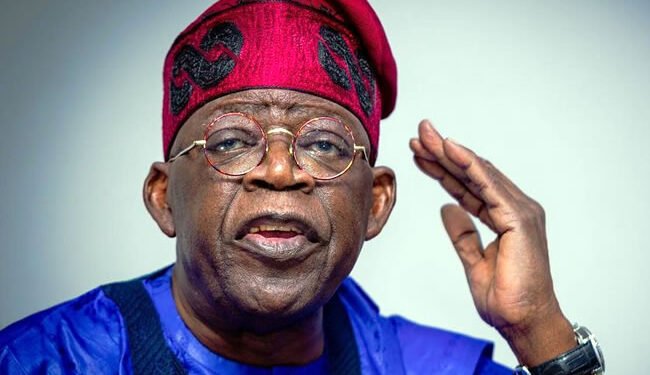The Igbo want President Bola Ahmed Tinubu to address security, end the agitations that have led to the weekly Monday sit-at-home, and restructure the country to give the regions control over resources and development at their own pace.
The zone sought to dominate power at the center, utilizing the 2023 general elections to ensure that Peter Obi won, although sources suggested that it might have still achieved these objectives.
Chief Chekwas Okorie, the founding national chairman of the All Progressives Grand Alliance (APGA), advised President Tinubu on how to accomplish his “renewed hope” mantra: “Very well-meaning Nigerians have asked for the restructuring of Nigeria to bring about real federalism.
Restructuring this country will allow every federating unit to grow and lessen the importance of the president. Presidential elections will not be life-or-death.
He further stated, “In countries that practice true federalism other than America, I don’t know if there is a struggle for the presidency. They care about their mayor and governor. So those things that hit this country—those things that make somebody go to a place and occupy it and say it is their land—that result in clashes and bloodshed will disappear.
Restructuring includes a security architecture overhaul. One police command cannot cover Nigeria. State and municipal police should provide protection to all citizens. Ndigbo needs these.”
Southeast security has worsened despite restructuring. Killings and kidnappings for ransom have returned throughout the zone’s five states, raising concerns about how to stop the violence and restore order.
The assassination and kidnapping of a team of officials from the Lagos Consulate of America and their police escorts along Atani/Osamala Road in the Ogbaru Council area of Anambra State shocked the nation a few weeks ago. The assault killed seven and left two others missing. State police found the bodies and freed the two abducted people.
Thus, Southeast firmly believes that Tinubu will do the country a lot of good if he adopts measures that solve the challenges, emphasizing that the country cannot operate smoothly while a portion of it is bleeding.
“Restructuring is a very popular plan,” said Southeast Development Initiative (SEDI) Lead Promoter Chief Ikechukwu Modebelu. Regions are desired in the 1963 Constitution. A lack of reorganization led to the Aburi agreement. A civil war would have been avoided if the pact had been followed. Yakubu Gowon’s federal soldiers’ defection caused Emeka Ojukwu’s civil war. Restructuring will heal by fostering belonging and competition.
A week ago, gunmen killed three police officers in Umunze, Orumba South Local Council. The armed individuals attacked the 29 PMF and 54 PMF Umunze police officers as they were observing.
Murder and abduction are frequent occurrences in Imo State. The gunmen target monarchs, security officials, and others. Gunmen assassinated Eze Victor Ijioma, the Monarch of Orsu Obodo in Oguta council, and the Traditional Prime Minister of Isiama Mgbede community in his palace a few days earlier.
Last year, a monarch, Ignatius Asor of Obudi Agwa community in Oguta council, was assassinated together with his chiefs and others during a conversation at the traditional ruler’s palace. The claimed palace invaders killed the monarch, his chiefs, and the peasants by shooting randomly.
Five Imo State policemen were slain at Ngor Okpala on April 21. Two more police officers died at the Okpala intersection in Ngor Okpala council last week.
After the killings and kidnappings, the southeast became nearly uninhabitable before this year’s general elections. Some election candidates died in Ebonyi State after campaign convoys were ambushed. The unsolved murder of the Labour Party senatorial candidate for Enugu East, Enugu State, Oyibo Chukwu, has reverberated.
Lawyer Chukwu was slain while returning from campaigning days before the elections. His killers burned his car completely before leaving.
Chief Dons Ude, the All Progressives Grand Alliance (APGA) governorship candidate in the state, was assassinated a few days after the polls. After a search, Ude was found dead in a bush in Udi Louncil Council.
Ifeanyi Ugwuanyi, the former governor, set a N5 million reward for his murderers.
Intersociety, a human rights group, asked for investigations into the Southeast’s brutal deaths and escalating instability.
Its board chairman, Emeka Umeagbalasi, was particularly upset by the situation in Imo State. His group’s investigations between January 2011 and May 2023 (29 months) showed that 1,600 unarmed citizens were killed in the state, 1,200 civilian properties were burned, and thousands of youths were forced to flee.
He said state and non-state actors committed murder in the zone. However, faulty intelligence, force labeling, and security agent prosecution have fueled the deaths.
He named the Police Tactical Squad, Anti-Terrorism and Kidnapping Squad, Special Weapons Tactical Squads, Soldiers, Government Unknown Gunmen, Unknown Gunmen, Ebubeagu Militias, Jihadist Fulani herdsmen, Eastern Security Network, Armed Counterfeit Biafra Agitators, and Violent Street Criminal Entities as killing unarmed citizens in Imo State.
“Imo State is in deep crisis. Due to assassinations, abductions, human rights abuses, burnings, and damage, the southeast has the poorest security. He stated that Ebonyi and Anambra states in the southeast followed Imo’s instance.
Umeagbalasi added: “The armed non-state actors in Imo State have since January 2021 killed at least 700 defenseless citizens and abducted 900 others, out of which 400 were killed in captivity and 300 died in open shootings that occurred in different parts of Imo State.
The “dreaded Ebubeagu militias also took a lion’s share alongside political death/killer squads and armed counterfeit agitators in the open shootings and killings that claimed the lives of 300 defenseless citizens in the state.”
The group added that in addition to inquiries, indictments, and prosecutions, the leading perpetrators should be placed on visa bans and barred from all international career, professional, and private engagements, especially in America, Canada, Australia, France, Germany, and Southeast Asia.
Since 2021, the Indigenous People of Biafra (IPOB) have held a weekly sit-at-home in solidarity with their jailed leader, Nnamdi Kanu.
The group’s demand that the civil action continue until its leader is released “unconditionally” requires locals to stay indoors every Monday. Splinter agitator groups’ promises to keep people inside are exacerbating the sit-at-home movement, which has harmed the local economy.
Dr. Chuddy Ogenyi, a development specialist, said that Ndigbo want Nigeria to solve issues like insecurity, agitation, and marginalization.
He said, “The zone is too insecure. Movement is restricted. It hurts regional productivity and industry. Monday produces more than the rest of the week combined. Igbo insecurity and staying-at-home are self-hatred.
“The sit-at-home lifestyle is destroying the region’s economy. We can’t stop it, and it’s hurting the country’s earnings. Civil servants are delighted, but employers are not. Development slowed. Delta benefits from the sit-at-home lifestyle since many industrialists have left the Southeast. In Aba, Ikot Ekpene is taking over production. “The government should halt it.”
The Tinubu government will “deepen the bond of unity, peace, and progress in the country if it begins to address specific problems, which the Igbo have raised for some time now,” according to Ogenyi. Restructuring is old. Southeast, south-south, and southwest leaders think it’s time to test it.







